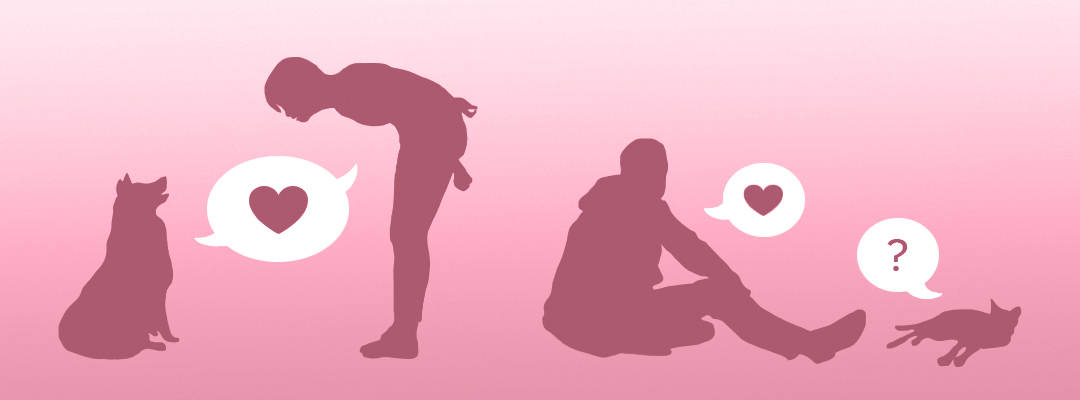
Do Our Pets Really Love Us? How Can We Know?
Most of us believe our pets experience emotions. Our dogs meet us at the door, tails wagging when we come home from work. Our cats jump up on our pillows in the morning, telling us to wake up. We believe they love us, but is that what they’re really experiencing? How can we know?
Research suggests pets really are capable of experiencing a level of attachment that might be considered love by human standards, although within a more limited range. With dogs it’s especially clear this attachment arises out of their relationship with their owners and not the simple fact that the owners feed them. Cats are a bit more…well, complicated.

The brains of many mammals are surprisingly similar to the human brain, particularly with respect to the structure and surface folding. We also know that dogs have similar hormones and undergo the same kinds of chemical changes as humans during emotional states. They even produce oxytocin, the “love” hormone that’s produced in high volumes in pregnant women during birth to increase the emotional bond to their babies. This suggests that the brains of dogs might function in similar ways to humans, including experiencing emotions like love. We’ve all read stories of loyal dogs that refused to leave the graves of their deceased owners or saved their human family from a house fire. Still, it’s important not to assume that the emotional range of a dog is the same as a human.
Recent research put both dogs and cats to the “strange situation” test, an experiment designed to gauge how attached children are to their mothers. The test placed individual cats and dogs said to be highly attached to their owners in an unfamiliar room, first with their owner, then alone, then with a stranger. When left alone, the dogs’ reactions were somber and disoriented, which later turned to anxiety, barking and withdrawal when the stranger walked in. The cats, on the other hand, showed no discernible reaction through each change in their situation. Normally, the stronger the attachment between two individuals is, the larger the distress response will be when they are separated until the caregiver returns. Based on these results, it’s believed that dogs do experience a sense of attachment and love for their owners similar to that of a two-year-old child. Cats are said to have an avoidant attachment style with their owners that’s more based on resources like food, rather than the need for safety, security, and comfort. This is often displayed after a huge clap of thunder, when a dog will run to its owner, while a cat will run away and hide under the couch.
Like infants, dogs do experience emotions, but fewer of them and of a different quality than adult humans. It’s believed they can experience love, fear, anger, disgust, contentment, excitement, joy, suspicion, and shyness at the level of a two-year-old child. They cannot experience more complex emotions like pride, shame, guilt, resentment or contempt that require self-awareness. You may think your dog is feeling guilty when you come home to find he’s torn up a roll of toilet paper and strewn it all over the house, but what he’s actually displaying is fear of punishment.
“Dogs comforting their owners suggests a more sophisticated type of attachment than cats.”
MRI studies of dog brains found increased activity in the regions associated with attachment, empathy, and a “theory of mind” in response to their owner’s scent. A theory of mind is a belief system involved with what others think and want that’s regularly updated. In short, dogs care about what their owners are thinking.
Evidence also shows that dogs can employ empathy to temporarily take on the role of caregiver. A 2012 study published in Animal Cognition showed dogs were more inclined to approach a crying person than someone who was talking or humming, and they did so with submissive behavior. Researchers believe this reaction to weeping indicates that dogs aren’t just curious, but possess a primitive understanding of human distress. Dogs comforting their owners suggests a more sophisticated type of attachment than cats. With this in mind, it’s also interesting to note that dogs are the only non-primate animal that will look humans in the eyes, perhaps because they really do know what we’re thinking…perhaps because they love us.
JOIN THE MOVEMENT
Subscribe to our newsletter and receive inspirational stories delivered to your inbox that spread love, updates on our movement, and notifications on upcoming deals & events.

